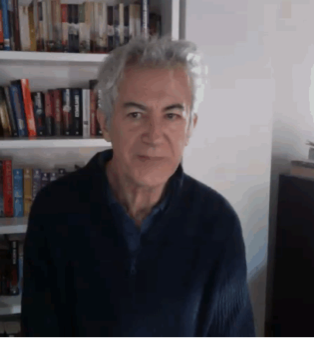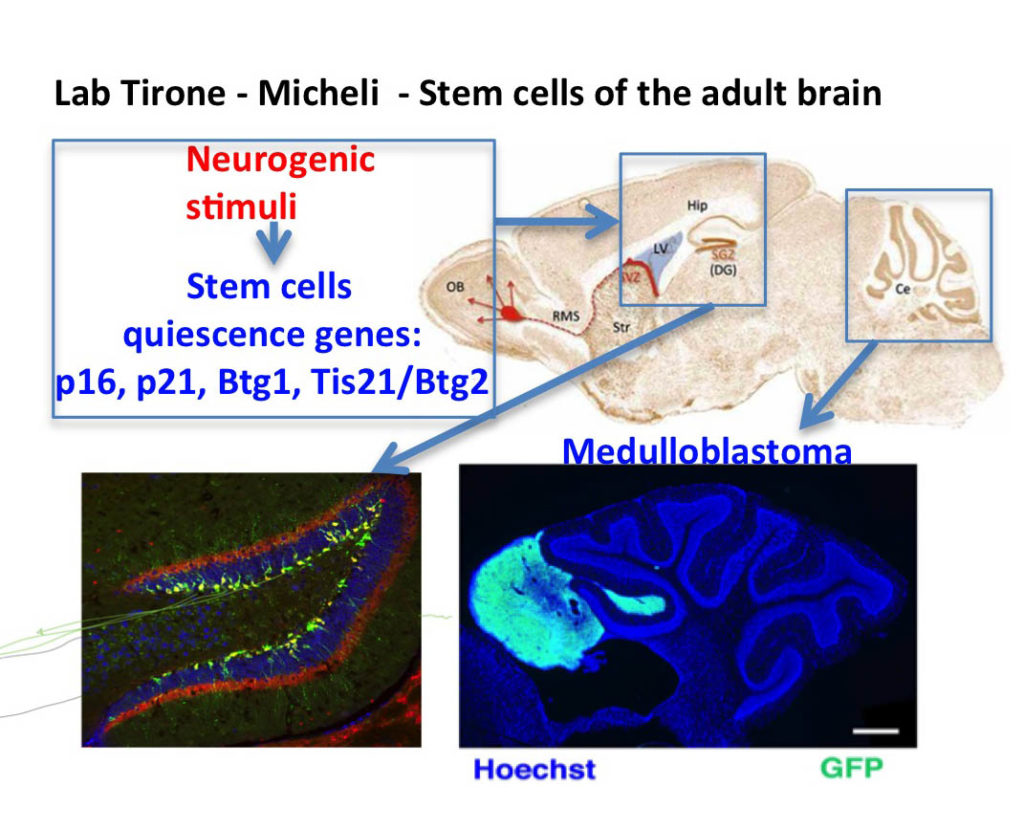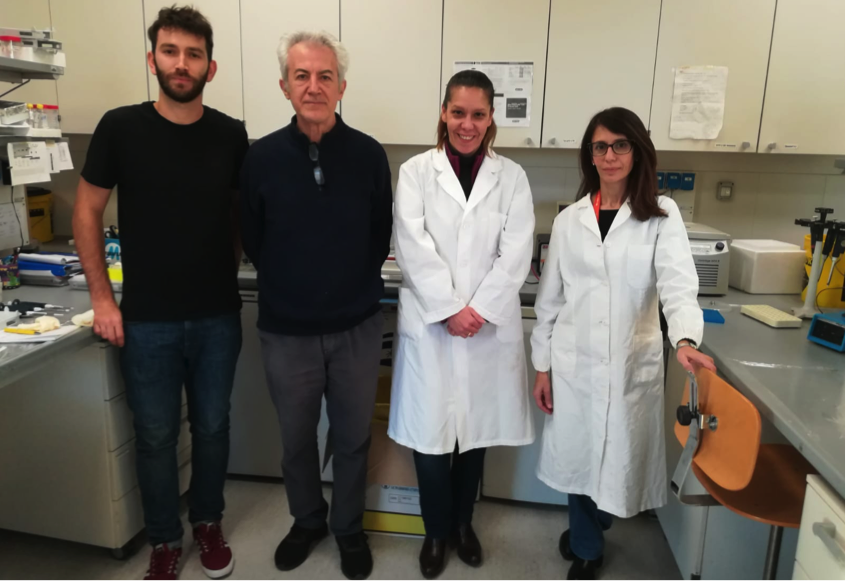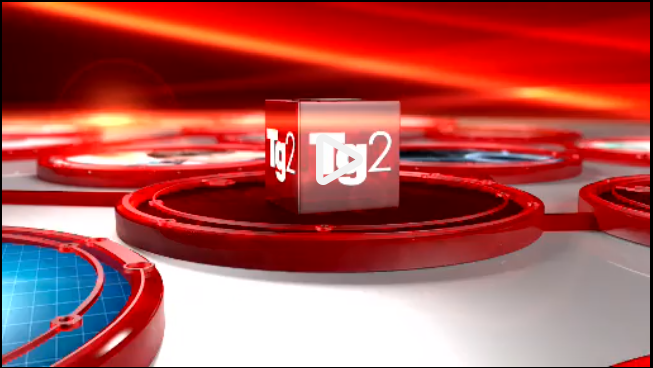
KEYWORDS: Adult neurogenesis, neurogenic stimuli, gene therapy
Since more than a decade Felice Tirone and his laboratory are studying the dynamics of adult neurogenesis in the two neurogenic brain niches that continue to generate new neurons during adulthood, i.e., the dentate gyrus of the hippocampus and the subventricular zone, as well asin the postnatal cerebellum, which shows a transient but strong process of neurogenesis after birth. The continued production of new neurons during adulthood in the hippocampus plays an important role in improving the efficiency of episodic and associative memory, as shown by several laboratories including our’s. For our studies on neurogenesis we have generated mouse models with genetic alterations in genes that regulate the processes of proliferation and differentiation of neural stem cells. Our efforts are thus aimed to elucidate at the cellular and genetic levels the processes of self-renewal and differentiation as well as the functional aspects (memory) of stem cells, neural progenitors and mature neurons in the hippocampus, the subventricular zone and the cerebellum.
We are focusing in particular on two projects. In first place, we are testing the ability of different neurogenic stimuli to reactivate neural stem cells characterized by defective proliferation and differentiation; we are experimentally evaluating the interplay between the genetic controls of cell cycle and differentiation, as regulators of the maturation of stem cell in adult neurons. In this way, we have found procedures to efficiently reactivate neural stem cells in vivo.
A second key project is focused on finding new therapies to counteract the growth of medulloblastoma, the cerebellum tumor which originates from progenitor cells of cerebellar granule neurons. We have identified two medulloblastoma suppressors, the gene Tis21 and the chemokine Cxcl3, which are presently under preclinical validation through studies performed at at different stages of tumor development.
We have also studied during the last years also the process of maturation of the stem cells of the skeletal muscle (satellite cells), identifying a gene (IFRD1) that stimulates their regeneration.

Education
-1972 Graduated from High School
-1973-79 Degree in Biological Sciences, University of Milan (cum laude). Thesis: “Effect of intracerebroventricular administration of Met- and Leu-Enkephalin on the electroencephalographic activity of the rat.” Cum laude.
-1981-83 Diploma of Specialization in Pharmacology, University of Milan (cum laude). Thesis: “Effect of opiates on the adenylate cyclase activity in the rat striatum.”
-1983-87 Ph.D. (Dottorato di ricerca) in Pharmacology and Toxicology, University of Milan (1985-1987 at Stanford University, Stanford, USA).
Positions
-1977-79 Undergraduate Student, Dept. of Pharmacology School of Biology, University of Milan
-1979 Postgraduate student, Dept. of Pharmacology School of Biology, University of Milan
-1980 Military service
-1981-82 Graduate fellow, Dept. of Pharmacology, School of Medicine, University of Milan
-1981-83 Attendance to the courses of Specialization in Pharmacology, School of Medicine, University of Milan
-1983-85 Post-doctoral fellow at the Dept. of Pharmacology, School of Medicine, University of Milan.
-1987-89 Post-doctoral fellow at the Department of Neurobiology, Stanford University, USA
-1989-95 Non tenured researcher at the National Research Council, Department of Neurobiology, Rome, Italy
-1996-2000 Tenured researcher at the National Research Council, Institute of Neurobiology and Molecular Medicine, Rome, Italy
-2000-2020 Tenured first researcher at the National Research Council, Institute of Cell Biology and Neurobiology, Rome, Italy
-2020-today Associate senior researcher at the Institute of Biochemistry and Cell Biology, Monterotondo, Rome, Italy
Honours/Awards:
Invited speaker or chairman at Congresses and teacher at international Courses:
1992- Invited speaker at 15th Taniguchi Symposia on Brain Sciences, Monterey USA, 1992.
2001- Invited as teacher for the FEBS course “From differentiation to death of the nerve cell”, Spetses, Grecia.
2004- Invited chairman and speaker at Symposium “The cell cycle and neuronal differentiation” 2004, Congresso della Federazione delle Società Europee di Neuroscienze (FENS), Lisbona, Portogallo.
2005- Invited speaker at the 4th International Conference on Duchenne and Becker Muscle Dystrophies. Parent project Onlus. Roma 2005.
2005- Invited speaker at the Workshop on Cell cycle and Development, Tokyo, Aichi Kosei Nenkin Kaikan, Nagoya, Japan, 2005.
2009 – Invited speaker: XIII Congress of the Italian Society for Neuroscience, 2-5 October, Milano.
2009 – Invited speaker: Spring Hippocampal Research Conference, 14-19 June, Verona, 2009.
2011 – Invited chairman and speaker at: Spring Hippocampal Research Conference, 22 May, Verona, 2011.
2013 – Invited chairman and speaker at: Spring Hippocampal Research Conference, 2 June, Taormina, 2013.
2022 – Invited speaker. Preclinical validation of a novel medulloblastoma therapy employing the chemokine Cxcl3. Meeting at VIMM (Venetian Institute of Molecular Medicine), University of Padova. State of the art of brain tumors: Research, therapies and quality of life – 22 Sept 2022
Referage of scientific projects:
- Reviewer for Austrian Science Fund. Project “Role of the TIS7/SKMc15 genes in regeneration processes”. Year 2005
- Reviewer for the Foundation Mariani ONLUS. Year 2005.
- Reviewer of projects of the University of Milan, Italy. Years 2010 and 2011.
- Reviewer of the Agence Nationale de la Recherche (ANR), France.
Teaching activities in higher education courses:
2007-2014: Guest Professor in the PhD course of Biological Evolution and Biochemistry, of the University of Tuscia, Viterbo.
Awards:
- Farmitalia award, Milan, 1982
- Taniguchi Symposia Fellow, 1992
- Advisor of the President of CNR in a work group for the study of the development of the “Polo di di Biologia e Neuroscienze a Monterotondo”
- 2010 “Visiting Professor” Award, Amelia Valenti Vigevani Memorial Fund for Italy-Israel Academic Exchange.
Patents:
Patent for a new therapy of medulloblastoma:
Patent CNR: “Cxcl3 chemokine for the therapeutic treatment of medulloblastoma” WO 2014053999 A1; Publication date 10 apr 2014; registration date 2 ott 2013
H INDEX = 27 (Web of Science – 10-2024)
H INDEX = 32 (Google Scholar: 10-2024 3500 citation)
1) Farioli-Vecchioli S, Saraulli D, Costanzi M, Pacioni S, Cinà I, Aceti M, Micheli L, Bacci A, Cestari V, and Tirone F. (2008) The timing of differentiation of adult hippocampal neurons is crucial for spatial memory. PLoS Biol 6(10): e143.
2) Farioli-Vecchioli S, Micheli L, Saraulli D, Ceccarelli M, Cannas S, Scardigli R, Leonardi L, Cinà I, Costanzi M, Ciotti MT, Moreira P, Rouault JP, Cestari V, Tirone F. 2012. Btg1 is Required to Maintain the Pool of Stem and Progenitor Cells of the Dentate Gyrus and Subventricular Zone. Front Neurosci. 6:124. Epub 2012.
3) Farioli-Vecchioli S, Cinà I, Ceccarelli M, Micheli L, Leonardi L, Ciotti MT, De Bardi M, Di Rocco C, Pallini R, Cavallaro S, Tirone F. 2012. Tis21 knock-out enhances the frequency of medulloblastoma in patched1 heterozygous mice by inhibiting the Cxcl3-dependent migration of cerebellar neurons. J Neurosci. 32:15547-15564.
4) Micheli L, D’Andrea G, Ceccarelli M, Ferri A, Scardigli R, Tirone F. (2019). p16Ink4a Prevents the Activation of Aged Quiescent Dentate Gyrus Stem Cells by Physical Exercise. Front Cell Neurosci 13:10. doi: 10.3389/fncel.2019.00010.
5) D’Andrea G, Ceccarelli M, Bernini R, Clemente M, Santi L, Caruso C, Micheli L, Tirone F. (2020). Hydroxytyrosol stimulates neurogenesis in aged dentate gyrus by enhancing stem and progenitor cell proliferation and neuron survival. FASEB J. 34:4512-4526. doi: 10.1096/fj.201902643R.

Researchers :
Laura Micheli PhD
Tel. 06-90091479
email: laura.micheli@cnr.it
Post-doctoral fellows :
Giorgio D’Andrea PhD
email: dandrea.giorgio@gmail.com
PhD student:
Daniel Volpe
External collaborators
Manuela Ceccarelli PhD
email: manu.ceccarelli@gmail.com
- Scientific coordinator of the project of Associazione per le Neuroscienze Giuseppe Moruzzi: “Activation by neurogenic stimuli of neural stem cells in adult neurogenic niches and the cerebellum: study of the related pathophysiology and role of the brain-muscle axis”. PDGP Progetto DSB.AD004.514. Da 01/10/2024 a 30/09/2028.
- Scientific coordinator of the project of Lazio Innova (Regione Lazio), Title: Cognitive decline, loss of muscle function and changes in the intestinal microbiota associated with aging: protective effects of hydroxytyrosol, component of olive oil, and of extracts from oil by-products. Project number A0375-2020-36407. From 22/07/2021 to 22/07/2024.
- Scientific coordinator of the project of the Adriano Buzzati-Traverso Foundation: Study of the activation by neurogenic stimuli of neural cells in adult neurogenic niches and in the cerebellum, and of the pathophysiology inherent to these processes. From 01/10/2020 to 30/09/2024. CUP B59C20000430007.
- Chairman of the steering committee of the project PRIN 2022 4PMKEH, CUP B53D2301836 0006. Title: MBNEWTHERAPY: Combined therapies in a Ptch1+/−/Tis21KO mouse model of medulloblastoma by eliminating cancer cells with anti-ErbB2/4 CAR-T lymphocytes and by a prodifferentiative treatment with chemokine Cxcl3. from 11/2023 to 11/2025.
- Participant to the NUTRAGE project (FOE 2021): PDGP DBA.AD005.225- IBBC-5: Title: Effect of olive oil polyphenols on stem cells of the neurogenic and muscular niches and on the intestinal microbiota in mouse models of aging. PI of the project: Dr. Laura Micheli, IBBC-CNR. From 1/6/23 to 31/12/24.
- Scientific responsible of the Project funded by Fondazione Giovanni Celeghin. Title: Preclinical validation of a novel medulloblastoma therapy employing the chemokine Cxcl3. 2020-2022.
- Scientific coordinator of Project of Lazio Innova (Regione Lazio), Title: Recurrent medulloblastoma: molecular studies in new preclinical models, for new therapies in humans. Number 85-2017-14785-L.R. 13/2008 CUP B56C17000140002 – from 01/6/2018 to 30/12/2020.
- Scientific unit participating to the Project of the Ministry of Treasure and Finance, FaReBio di Qualità – Drugs and Biotechnological Networks of Quality – 30/6/2011- 30/06/2015.
- Scientific unit of the Project in the framework agreement between CNR and Foundation EBRI. Title of FTirone Project: “The role of neurogenesis in memory processes.” 2010-in progress.
- Scientific responsible of the project funded by the Italian Association for Cancer Research (AIRC) n°9251, years 2009-2012: “Targeting the medulloblastoma inhibitory gene PC3/BTG2 to neoplastic cerebellar progenitors cells and neurons.”
- Scientific responsible of the Project of Research of National Interest (PRIN) 20074Z3H3N_003 funded by MIUR (Ministry of University and Research). Title: Transcriptional regulation of the proliferative and differentiative mechanisms in the neuron and their implication in tumorigenesis. Years 2009-2011.
- Scientific responsible of the Project funded by FILAS (Finanziaria Laziale per lo sviluppo) Regione Lazio. Title: Development and validation of gene-profiling systems for diagnosis and prognosis of medulloblastoma and glioma, tumors of the central nervous system. Years 2009-2012.
- Coordinator of the international Italy-Israel FIRB project (Investment Fund of Basic Research from Ministry of University and Research): “Gene control of the development of cerebellum and during medulloblastoma tumorigenesis”. 2006-2009: Project RBIN04P4ET.
- Scientific responsible of the Telethon project: GGP05082, 2005-2008: Role of the gene PC4/IFRD1 in muscle and neuron regeneration.
- Scientific responsible of the project funded by Compagnia di San Paolo, years 2004-2008: Study of the proneural and antiproliferative gene PC3 in the development of cerebellum and in the onset of the cerebellar tumor, medulloblastoma, and of its use in antitumor gene therapy.
- Scientific responsible of the Research Unit of the Coordinated Project: “Dynamic analysis of the differentiative ways activated by different growth factors in stem cells”. Ministery of the University and Research-FIRB, 2003-2006: Project RBAU01PCRL
- Scientific responsible for Italy of the European Community project FP5 (Grant: QLG3-CT-2000-00072), line of action 9.3 Brain development, disorders and repair. Title: “Genes controlling neuronal specification and differentiation”. 2000-2004.
- Scientific responsible of the Operative Research Unit of the Strategic Project Oncology CNR-MIUR, 2000-2001 and 2002-2004 (BRIDGE): Regulation of cyclin D1 by the antiproliferative gene PC3, inducible by p53, during DNA damage and tumorigenesis.
- Alpha Recipient of private donation provided by Mrs. Maria Bianchi, years 1997-2008. Project title: Study of genes regulated by NGF.
- Scientific responsible of the Telethon project: A046, 1995-1998: Studies on the molecular and biological function of the muscle differentiation regulatory protein PC4.
- Scientific responsible of the Telethon project: A108, 1991-1994: Molecular studies in the muscle of a nerve growth factor inducible gene, PC4, which is expressed in myoblasts and regulated during their differentiation to myotubes.
- Scientific responsible of the project of the Italian Association for Cancer Research, 1994: Study of the nerve growth factor-regulated gene as a potential anti-oncogene.
- Scientific responsible of the Istituto Superiore di Sanità project, 1991-1992: Study of the effects of nerve growth factor and of NGF-regulated genes on viral replication.
- Unit head of the CNR project “Finalizzato” Genetic Engineering 1990-1995: Study of gene regulated by nerve growth factor and expressed during embryonic differentiation.
PRESS RELEASE
1) 07/10/2008. La memoria migliora se i neuroni sono nuovi. Un team di ricercatori del CNR-LUMSA-EBRI mostra come neuroni ‘appena nati’ nel cervello adulto divengano agenti attivi nei processi di apprendimento e memoria. I risultati sono pubblicati sulla rivista Plos Biology https://www.cnr.it/it/comunicato-stampa/4771/la-memoria-migliora-se-i-neuroni-sono-nuovi
2) 21/01/2010. Che memoria ha quel neurone! Identificata per la prima volta la funzione essenziale di PC3/Tis21/BTG2 nello sviluppo neuronale e nel processo di formazione delle memorie. https://www.cnr.it/it/comunicato-stampa/4942/che-memoria-ha-quel-neurone
3) 20/11/2012. Una chemiochina contro il medulloblastoma. Studiando la trasformazione neoplastica delle cellule ‘progenitrici’ dei neuroni del cervelletto – l’evento dal quale trae origine il medulloblastoma – un gruppo di ricercatori dell’Istituto di biologia cellulare e neurobiologia del Consiglio nazionale delle ricerche (Ibcn-Cnr), in collaborazione con l’Istituto di scienze neurologiche del Cnr e Fondazione Santa Lucia, ha scoperto in modello murino che la molecola responsabile della frequenza con cui tale neoplasia insorge è una chemiochina che regola la migrazione dei progenitori neuronali. https://www.cnr.it/it/comunicato-stampa/5406/una-chemiochina-contro-il-medulloblastoma
4) 17/02/2020 L’olio fa bene al cervello, soprattutto negli anziani. Identificato il ruolo anti-invecchiamento neurale in vivo di un componente dell’olio extravergine di oliva, l’idrossitirosolo, presente in abbondanza anche negli scarti di lavorazione. Riscontrati particolari effetti benefici negli anziani. I risultati pubblicati su Faseb Journal sono stati dimostrati da una équipe di ricercatori del Cnr e della Università della Tuscia

